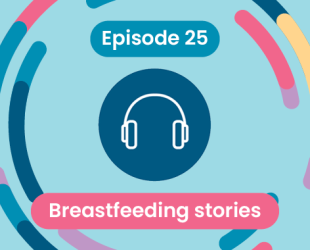Tongue-tie is one possible cause of sore nipples, but there are many other more common reasons.

Tongue-tie occurs when the membrane under the baby's tongue (the lingual frenulum) restricts the movement of the tongue.1 In some cases, the tongue is not free or doesn't move easily enough for the baby to attach properly to the breast.
Tongue-tie is thought to occur in around 8% of newborns and is more common in males.2
Some babies with tongue-tie are able to attach to the breast and suck well. However, many have breastfeeding problems, resulting in nipple damage, poor milk transfer and low weight gains in the baby. Because baby may not be removing milk well, some mums may also end up with breast inflammation or mastitis.
Why is a tongue-tie a problem for breastfeeding?
Your baby's tongue needs to work well to be able to remove milk from your breast effectively. If baby's tongue is anchored to the floor of their mouth due to a tongue-tie, they can't do this as well.
Your baby may not be able to take in a full mouthful of breast tissue. They aren't able to draw your nipple far enough back into their mouth and this results in baby 'nipple-feeding'. As baby sucks at the breast your nipple constantly rubs against their hard palate and may become damaged as a result.
There are many signs that a baby is having problems with breastfeeding and occasionally these are related to tongue-tie.
The nipple looks flattened after breastfeeding.
You can see a compression or stripe mark on the nipple at the end of a breastfeed.
There is visible damage such as a crack.
It hurts to feed.
Your baby fails to gain weight well.
You won’t necessarily have all these signs and they can all be related to other breastfeeding problems rather than a tongue-tie.
Diagnosis of tongue-tie
ABA counsellors are not medically trained and cannot assess whether or not a baby has a tongue-tie. If you are concerned that your baby has a tongue-tie that is making breastfeeding difficult, you may like to see a lactation consultant who can carry out a full assessment including checking how breastfeeding is going and looking inside your baby's mouth.
The lactation consultant will discuss what they find with you and give you some options. If they think that a tongue-tie may be contributing to your breastfeeding problems, you can be referred to an appropriate health professional who can make the diagnosis and release the tongue-tie if necessary.
Treatment for tongue-tie
If it is decided that a tongue-tie is interfering with breastfeeding, then a surgical procedure to release the tight lingual frenulum can improve the baby's ability to breastfeed.
There is currently no formal accreditation for health professionals performing tongue-tie releases.
Other ties
Studies done so far have not been designed in a way to determine if other ties may or may not impact breastfeeding. These include 'upper lip-ties' and 'buccal-ties' (ties between the gums and cheeks). Currently, there is no published evidence about releasing these ties for breastfeeding problems.
Dr Lisa Amir, a GP and lactation consultant, talks about tongue-tie in the following video.
References
- LeFort, Y., Evans, A., Livingstone, V., Douglas, P., Dahlquist, N., Donnelly, B., Leeper, K., Harley, E., & Lappin, S. (2021). Academy of Breastfeeding Medicine Position Statement on Ankyloglossia in Breastfeeding Dyads. Breastfeeding Medicine, 16(4), 278–281. https://doi.org/10.1089/bfm.2021.29179.ylf
- Hill, R. R., Lee, C. S., & Pados, B. F. (2021). The prevalence of ankyloglossia in children aged <1 year: A systematic review and meta-analysis. Pediatric Research, 90(2), 259–266. https://doi.org/10.1038/s41390-020-01239-y
© Australian Breastfeeding Association February 2023



